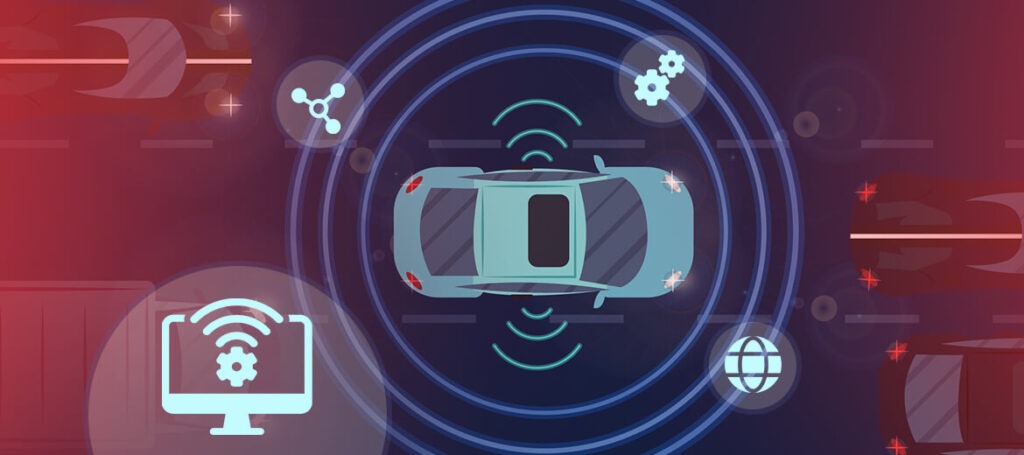Role of AI in Automotive Industry
Artificial Intelligence (AI) has significantly transformed the automotive industry in the recent past. Revolution of advanced manufacturing mechanisms, and convenience-driven innovation are replacing traditional automobile technology. AI plays a pivotal role in developing self-driven cars. Leading brands like BMW, Volvo, and Tesla utilize AI to enhance automobile manufacturing, improve supply chain efficiency, and enhance driving safety, comfort, and convenience.
AI-powered solutions and machine learning (ML) algorithms enhance automobile production processes, accelerate data classification during risk assessments, and improve vehicle damage evaluations. Technologies like computer vision, natural language processing, and conversational interfaces are widely used in vehicle manufacturing. AI analyzes data from vehicles and sales figures, enabling accurate modeling and real-time insights for production processes.
IBM, earlier this year, released data from one of its surveys on AI adoption which suggested that about 42% of enterprise-level organizations have AI actively in use. However, there are challenges, especially from the IT security perspective of adopting AI.

Why Automotive Cybersecurity is Critical?
Automotive cybersecurity is the measures and technologies implemented to protect connected vehicles and their onboard systems from different cyber threats including malicious invaders, access control abuse or data breach. Automotive cybersecurity measures ensure safe and secure transportation for self-driven vehicles and its data. As modern cars become more digitized, they serve as information clearing houses, but this also makes them tempting targets for cyberattacks.
As cars become more connected and autonomous, the demand for robust cybersecurity solutions grows significantly. Over the last few years, the cyber risk associated with connected cars has become evident. Security researchers have identified various technical vulnerabilities, which they often disclose to original equipment manufacturers (OEMs) to address before malicious attackers exploit them.
Where are the impending risks and how to address them?
Hacking incidents that involve connected cars have raised real concerns about vehicle cybersecurity. While regulators such as UNECE (United Nations Economic Commission for Europe) WP.291 regulation trigger intense necessity of several cyber guidelines, manufacturers and buyers of AI-driven vehicles need to be aware of the inherent risks. Below are some of the emerging risks that are most discussed in automotive cybersecurity.
- Compromised Safety: Cyberattacks can disrupt vital systems that are internet connected, eventually affecting vehicle safety.
- Privacy Breaches: Unauthorized access can compromise sensitive data pertaining to the connected device (e.g., smartphone) impacting user privacy.
- Financial Losses: By compromising sensitive personal data, cyber criminals can induce financial losses for manufacturers, suppliers, and consumers in the form of penalties.
- Reputational Harm: Any kind of breaches can damage the reputation of automotive companies.
- Being Aware of the Vulnerable Points: The vulnerabilities of several entry points make the intruders’ job easy. Weaknesses in various areas can lead to broader consequences. For example, factory machines can have vulnerabilities in manufacturing processes which eventually are misused by the culprits.
Any cyber incident due to any of the above either leads to penalties for non-conformity or discontinuity in production. While both are financially distressing, the reputation that is maligned is irrecoverable, especially because AI-driven cars are still gaining popularity and trying to grab the market.
How to address the risks (solution)?
Cyber criminals normally identify the external communication interface and attempt to access control systems inside the vehicle. This increases the risks exponentially because once they have access to the control system inside the vehicle, compromising data doesn’t take much time. Both the manufacturer and the supplier need to understand the types and functionalities of external communication technologies connected to a vehicle. Moreover, the customer/ vehicle owners have sound idea and understanding of security technologies that can be applied to address the vulnerabilities of external communication technologies connected to a vehicle.
Automotive cybersecurity technologies execute restrictive cybersecurity measures that help AI-driven vehicles to –
- Understand the automotive cybersecurity lifecycle and enhance awareness about the emerging culture and guidelines
- Compliance with international automotive cybersecurity regulations such as UNECE WP.291 Regulation, UNECE WP.29 R155 and UNECE WP.29 R156
- Continuous R&D with the characteristics of the control systems in new vehicles manufactured based on scope and agreement of compliance with the regulations
The Bottom-Line:
Cybersecurity threats and hacking techniques evolve continuously in the automotive industry. With the increasing acceptance of AI-driven advanced cars, the manufacturers, suppliers, and customers are gathering knowledge and getting more inclined to automotive cybersecurity technologies to address the impending risks.

